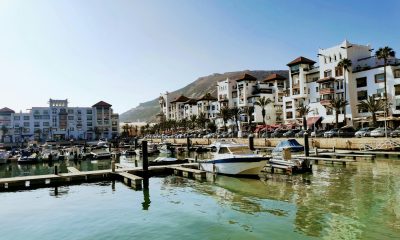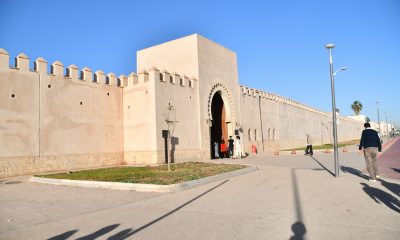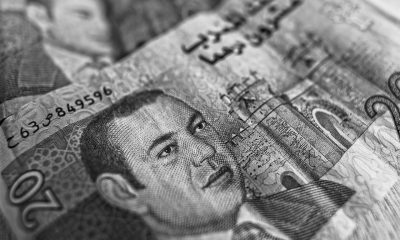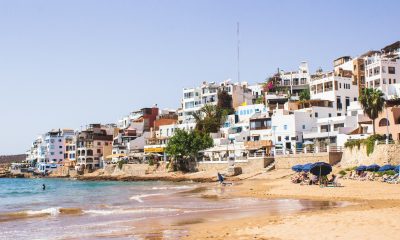Africa
Souss-Massa Launches ‘Back to Business’: Accelerating Investment with Bold Strategies
Souss-Massa is fostering investment through incentives aimed at priority sectors and reducing regional disparities. Key measures include support for industrial land acquisition, job creation, and the development of tourism and aquaculture. With abundant natural resources, infrastructure, and qualified workforce, the region offers attractive opportunities, supported by a 100 MDH budget and various regional bonuses for investors.

To support the high-speed deployment of investment in the region, economic players in the Souss-Massa region came together for the 1st edition of Back to Business to make this economic return a year of acceleration for investment. And this, by adopting a more aggressive approach to attract more investment.
With an unemployment rate exceeding the national average, i.e. 13.5% in the Souss-Massa region, only private investment can drive economic activity upwards in this territory occupying a median position as the 6th wealth-creating region at the national level, accounting for 6.2% of the national GDP.
A bet for the future at the heart of which is not only the absorption of the unemployment rate and the improvement of the employment and activity rate, but also the upstream promotion of investment, hence the initiation by the Souss-Massa Regional Investment Center (CRI) of the 1st edition of Back to Business, last Friday, in Agadir.
An event that will be transformed into an annual meeting according to Kenza Gassib, director of the CRI Souss-Massa, in order to promote the attractiveness of the region and its investment opportunities, in particular the regional offer and the potential for economic growth offered by this territory which has already started its industrialization process thanks to the regional version of Industrial Acceleration of the PAI (the first region to have benefited from this version of the PAI).
“It is essential to pay more attention to prospecting and identifying projects that create added value in order to adopt a more aggressive approach because the region is in competition with other territories and destinations. The aim is to attract more investment into more attractive growth niches and emerging sectors,” insisted Saaïd Amzazi, Wali of the Souss-Massa region, who highlighted the region’s achievements and the role of the CRI as a key player in promoting investment and regional development, especially within the framework of the new investment charter.
An ecosystem favorable to industrial investment
“This new incentive framework has already allowed and will allow our region to guide investments towards the priority sectors of our economy and to resolve territorial disparities between provinces and prefectures,” added Saaïd Amzazi.
Emphasizing the development of the region through the PDR, in particular the consolidation of reception and connection infrastructures, Karim Achengli, president of the Souss-Massa Regional Council, affirmed that the region is working tirelessly to build an ecosystem favorable to industrial investment.
“We have put in place concrete incentives to accompany and support investors. This includes support for the acquisition of industrial land, essential for launching large-scale projects, as well as specific measures to promote job creation in the industrial sector. Our objective is clear: to make Souss-Massa an attractive region, capable of offering real and tangible opportunities to those who wish to set up there,” said the president of the region.
At the same time, the Regional Council has developed subsidy mechanisms to support the booming aquaculture sector, as well as programs dedicated to tourism development.
“Today, there are many opportunities: whether through our industrial acceleration zone or initiatives aimed at strengthening regional economic dynamics. Our ambition is not limited to infrastructure. We have a vision, that of an inclusive, resilient, and forward-looking region to make Souss-Massa a model of regional development,” insisted Karim Achengli.
A regional framework that encourages investment in Souss-Massa
Emphasizing seven reasons to invest in the region, namely the abundance of natural resources, the presence of qualified and competitive human capital, an infrastructure offer, the connectivity of the region, the incentive framework, the business climate and the attractiveness of the region, Kenza Gassib, director of the CRI Souss-Massa, recalled the eligibility criteria within the framework of the new investment charter. These are the bonuses granted (sectoral bonus, territorial bonus and the five common bonuses), but also, the projects of a strategic nature.
At the same time, the CRI director highlighted the regional incentive framework with an initial budget envelope of 100 MDH allocated to this component via the support subsidy for the acquisition of industrial land up to 250 DH per square meter within the limit of 1 hectare, the employment bonus between 5,000 DH and 10,000 DH per job created, depending on the total investment amount and the number of stable jobs created. Added to this is the subsidy for the acquisition of industrial equipment set at 20% of the amount committed by the investor, according to the three ceilings.
“The CRI is committed to promoting the attractiveness of the region and its assets in terms of investment and initiatives that promote economic development,” explained Kenza Gassib from the outset during her speech.
In addition, a series of presentations were made during this event by regional operators, including the land offer through focuses on the industrial acceleration zone by Medz and the region’s industrial parks by Al Omrane. Added to this are the eligibility criteria for accessing the benefits of the ZAI by the Foreign Exchange Office, and the maritime connection and its prospects by the ANP and the CGEM as well as logistics solutions, especially with the Ait-Melloul logistics zone.
__
(Featured image by ar130405 via Pixabay)
DISCLAIMER: This article was written by a third party contributor and does not reflect the opinion of Born2Invest, its management, staff or its associates. Please review our disclaimer for more information.
This article may include forward-looking statements. These forward-looking statements generally are identified by the words “believe,” “project,” “estimate,” “become,” “plan,” “will,” and similar expressions. These forward-looking statements involve known and unknown risks as well as uncertainties, including those discussed in the following cautionary statements and elsewhere in this article and on this site. Although the Company may believe that its expectations are based on reasonable assumptions, the actual results that the Company may achieve may differ materially from any forward-looking statements, which reflect the opinions of the management of the Company only as of the date hereof. Additionally, please make sure to read these important disclosures.
First published in LES ECO.ma. A third-party contributor translated and adapted the article from the original. In case of discrepancy, the original will prevail.
Although we made reasonable efforts to provide accurate translations, some parts may be incorrect. Born2Invest assumes no responsibility for errors, omissions or ambiguities in the translations provided on this website. Any person or entity relying on translated content does so at their own risk. Born2Invest is not responsible for losses caused by such reliance on the accuracy or reliability of translated information. If you wish to report an error or inaccuracy in the translation, we encourage you to contact us

-

 Crowdfunding2 weeks ago
Crowdfunding2 weeks agoAWOL Vision’s Aetherion Projectors Raise Millions on Kickstarter
-

 Impact Investing6 days ago
Impact Investing6 days agoItaly’s Listed Companies Reach Strong ESG Compliance, Led by Banks and Utilities
-

 Impact Investing2 weeks ago
Impact Investing2 weeks agoBNP Paribas Delivers Record 2025 Results and Surpasses Sustainable Finance Targets
-

 Impact Investing3 days ago
Impact Investing3 days agoCDP Approves €1.5 Billion Package to Boost Industry, Renewables, and International Development

























